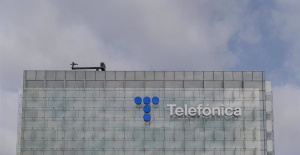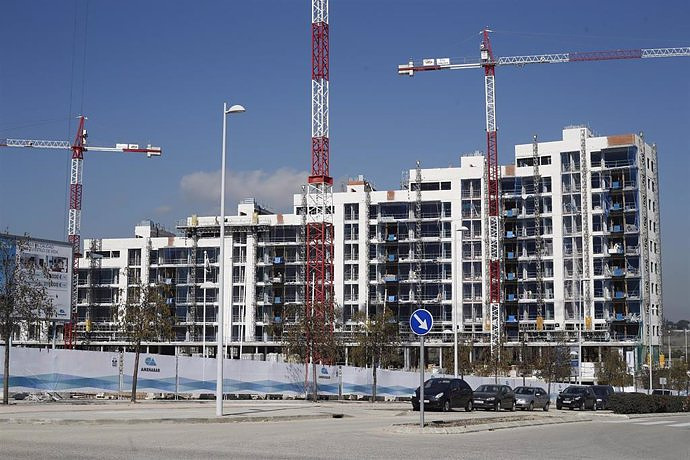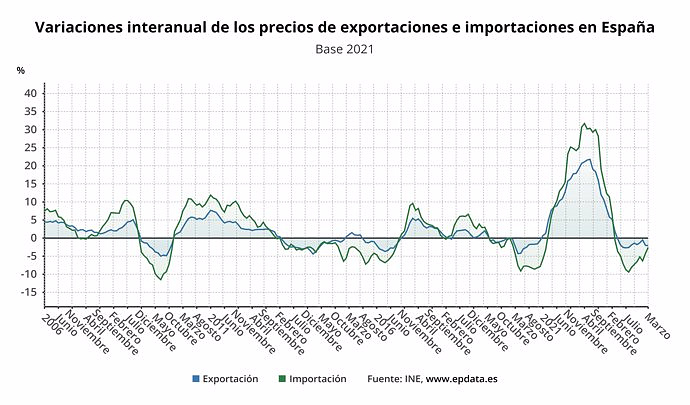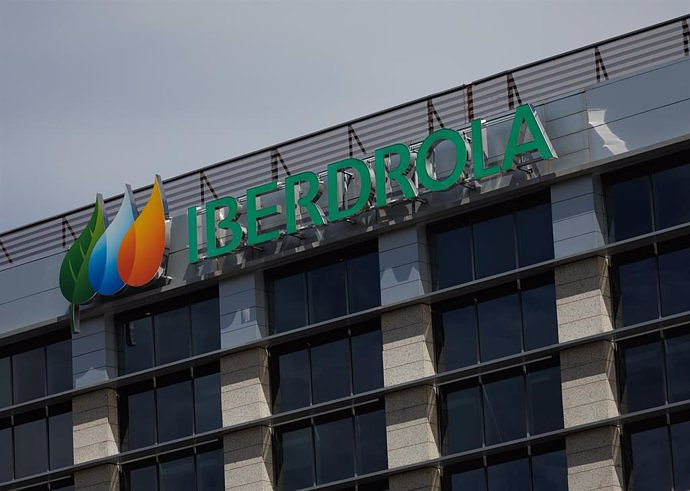Warns that the new fiscal measures of the Government do not take into account the "difficult situation" that SMEs are going through
MADRID, 3 Oct. (EUROPA PRESS) -
The total costs of small and medium-sized companies (Cepyme) soared 24.4% year-on-year in the second quarter, ten points more than their sales grew in this period (14.5%), according to the Cepyme indicator on the situation of the SME in the period April-June of this year.
These data mean that the increase in costs borne by SMEs has accelerated more than one point compared to the first quarter, while billing has moderated its growth rate by more than five points, which has translated into lower margins for SMEs . "The narrowing of business margins is getting worse," warns the business organization.
The rise in costs for SMEs is due to several factors. On the one hand, its energy bill (electricity, gas, oil derivatives and water) has doubled, with a year-on-year growth of 114% in the second quarter; the cost of supplies to produce goods and services has shot up 51.7%, its highest rise in 20 years, and the labor costs of these companies have risen 6.2%, above the 5.7% of first trimester.
"The wage pressure generated by the lack of workers to fill certain positions, especially in SMEs, considerably raises the entry wage. Added to this is the rise in the minimum wage, 3.6% in 2022, and explains why Salary costs of smaller companies rise more strongly, moving away from the salary increases agreed in the agreement (2.6% until August), "he argues.
For this reason, Cepyme demands that in the negotiations of the Agreement for Employment and Collective Bargaining (AENC) take into account "the sharp increase in costs" that smaller companies are suffering, "leaving them in many cases in a situation of loss of competitiveness".
Along with all this, the price of the services contracted by SMEs to carry out their activity increased by 2.7% year-on-year in the second quarter, its highest rise since 2007. Among the services that have become more expensive, the cost of transport stands out (20.5%), that of shipments by courier (5.2%) and that of security (3%).
Thus, although the Cepyme indicator on the situation of SMEs improves slightly in the second quarter due to the upturn in activity, "the strong costs and the reduction in margins and profitability still places it at 2014 levels".
Specifically, this indicator, which measures the strengths and vulnerabilities of the Spanish business fabric, "shows that high inflation rates fully affect companies, especially smaller ones," according to Cepyme.
The indicator stood at 5.7 points out of a total of 10 in the second quarter of 2022, compared to 5.4 points registered in the fourth quarter of 2021.
"This slight rebound is due to the boom in activity recorded in the first half of the year, but it is not enough to improve the general situation of the company, since the indicator is still at levels similar to those of 2014 and has not recovered the ground lost during the pandemic", exposes Cepyme.
At the same time, the indebtedness of SMEs has increased, with liabilities already equivalent to more than 100% of net worth, the highest level since 2018.
FORESEE A WORSENING THIS AUTUMN The business organization warns that this situation "predicts a worsening of the situation of SMEs in the fall, when activity slows down and companies are forced to borrow more to meet costs."
For Cepyme, the tightening of credit conditions due to increases in interest rates "will make the situation of SMEs even more vulnerable in the coming months."
According to the business organization, the net return on assets (ROA) stood at 2.8% in the second quarter, a figure lower than any data recorded between 2016 and 2020.
In the fourth quarter of 2019, the last complete one before the pandemic, the profitability of SMEs reached 3.7%.
"Of this loss of profitability of SMEs, 55% is explained by the lower level of activity caused by the measures to contain the pandemic and the incomplete recovery and the remaining 45% is due to inflation, which by triggering costs is eating away at business margins", denounces Cepyme.
Given this situation of fragility of the Spanish business fabric, the organization chaired by Gerardo Cuerva calls for the implementation of a comprehensive plan to support the company that helps alleviate the high costs that SMEs will face this autumn, that supports companies in its deleveraging process and that it bet "decidedly" on business growth.
In addition, Cepyme considers that the fiscal measures announced by the Government, although they represent a reaction with respect to citizens with low incomes affected by inflation, "does not consider the difficult situation that Spanish SMEs are going through."
"On the contrary, they generally represent an undermining of our perception of a stable country for investment and companies," he denounces.
According to Cepyme, the reduction of two points in the Corporation Tax addressed only to a part of the SMEs "is not in accordance with the reality that many companies are going through, whose increase in costs suffocates their liquidity and is the origin in many cases of problems of solvency".
"From Cepyme we urge the Government to try to prevent solvency problems, incipient at the moment, from weighing down a part of our business fabric," he concludes.

 Exploring Cardano: Inner Workings and Advantages of this Cryptocurrency
Exploring Cardano: Inner Workings and Advantages of this Cryptocurrency Seville.- Economy.- Innova.- STSA inaugurates its new painting and sealing hangar in San Pablo, for 18 million
Seville.- Economy.- Innova.- STSA inaugurates its new painting and sealing hangar in San Pablo, for 18 million Innova.- More than 300 volunteers join the Andalucía Compromiso Digital network in one month to facilitate access to ICT
Innova.- More than 300 volunteers join the Andalucía Compromiso Digital network in one month to facilitate access to ICT Innova.-AMP.- Ayesa acquires 51% of Sadiel, which will create new technological engineering products and expand markets
Innova.-AMP.- Ayesa acquires 51% of Sadiel, which will create new technological engineering products and expand markets Nadal is still alive and exciting in Madrid
Nadal is still alive and exciting in Madrid The Treasury injected another 500 million into the SEPI in March to purchase Telefónica shares
The Treasury injected another 500 million into the SEPI in March to purchase Telefónica shares The complaints from ERC and PP against Sánchez's interview do not reach the JEC in time, which did not consider suspending it
The complaints from ERC and PP against Sánchez's interview do not reach the JEC in time, which did not consider suspending it Occupancy in Spain for the May long weekend exceeds 80%, with Andalusia and the Canary Islands as preferred destinations
Occupancy in Spain for the May long weekend exceeds 80%, with Andalusia and the Canary Islands as preferred destinations How Blockchain in being used to shape the future
How Blockchain in being used to shape the future Not just BTC and ETH: Here Are Some More Interesting Coins Worth Focusing on
Not just BTC and ETH: Here Are Some More Interesting Coins Worth Focusing on They create a bank of machinery sounds to prevent breakdowns through artificial intelligence
They create a bank of machinery sounds to prevent breakdowns through artificial intelligence UPV students build a prototype of a wooden house to move to Equatorial Guinea
UPV students build a prototype of a wooden house to move to Equatorial Guinea The UA opens the call for the Impulso 2024 Awards for the best innovative business initiatives
The UA opens the call for the Impulso 2024 Awards for the best innovative business initiatives ALI, virtual assistant from Alicante, internationally recognized by the OECD
ALI, virtual assistant from Alicante, internationally recognized by the OECD A million people demonstrate in France against Macron's pension reform
A million people demonstrate in France against Macron's pension reform Russia launches several missiles against "critical infrastructure" in the city of Zaporizhia
Russia launches several missiles against "critical infrastructure" in the city of Zaporizhia A "procession" remembers the dead of the Calabria shipwreck as bodies continue to wash up on the shore
A "procession" remembers the dead of the Calabria shipwreck as bodies continue to wash up on the shore Prison sentences handed down for three prominent Hong Kong pro-democracy activists
Prison sentences handed down for three prominent Hong Kong pro-democracy activists ETH continues to leave trading platforms, Ethereum balance on exchanges lowest in 3 years
ETH continues to leave trading platforms, Ethereum balance on exchanges lowest in 3 years Investors invest $450 million in Consensys, Ethereum incubator now valued at $7 billion
Investors invest $450 million in Consensys, Ethereum incubator now valued at $7 billion Alchemy Integrates Ethereum L2 Product Starknet to Enhance Web3 Scalability at a Price 100x Lower Than L1 Fees
Alchemy Integrates Ethereum L2 Product Starknet to Enhance Web3 Scalability at a Price 100x Lower Than L1 Fees Mining Report: Bitcoin's Electricity Consumption Declines by 25% in Q1 2022
Mining Report: Bitcoin's Electricity Consumption Declines by 25% in Q1 2022 Oil-to-Bitcoin Mining Firm Crusoe Energy Systems Raised $505 Million
Oil-to-Bitcoin Mining Firm Crusoe Energy Systems Raised $505 Million Microbt reveals the latest Bitcoin mining rigs -- Machines produce up to 126 TH/s with custom 5nm chip design
Microbt reveals the latest Bitcoin mining rigs -- Machines produce up to 126 TH/s with custom 5nm chip design Bitcoin's Mining Difficulty Hits a Lifetime High, With More Than 90% of BTC Supply Issued
Bitcoin's Mining Difficulty Hits a Lifetime High, With More Than 90% of BTC Supply Issued The Biggest Movers are Near, EOS, and RUNE during Friday's Selloff
The Biggest Movers are Near, EOS, and RUNE during Friday's Selloff Global Markets Spooked by a Hawkish Fed and Covid, Stocks and Crypto Gain After Musk Buys Twitter
Global Markets Spooked by a Hawkish Fed and Covid, Stocks and Crypto Gain After Musk Buys Twitter Bitso to offset carbon emissions from the Trading Platform's ERC20, ETH, and BTC Transactions
Bitso to offset carbon emissions from the Trading Platform's ERC20, ETH, and BTC Transactions Draftkings Announces 2022 College Hoops NFT Selection for March Madness
Draftkings Announces 2022 College Hoops NFT Selection for March Madness



























